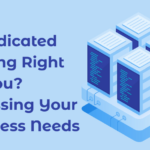
Having a quick-loading website is more crucial than ever in today’s competitive digital environment where attention spans are short. It has a substantial effect on search engine optimization (SEO), in addition to enhancing user experience. The relationship between website speed, SEO, and user experience will be discussed in this blog post. Furthermore, the significance of running website speed tests, or in other words, how to test your website speed to improve your online presence, will be highlighted.
The Impact of Website Speed on SEO
Rankings on web searches: Website speed is taken into account when ranking websites by engines of discovery like Google. A website that loads slowly is more likely to be ranked lower in search results than a website that loads quickly. When multiple websites provide similar content and relevance, website speed can be the differentiating factor in search engine rankings. Your chances of ranking higher in search results and attracting organic visitors to your website rise if you optimize the speed of your website.
Crawlability and Indexability: Search engine crawlers need to access and index your website’s content to understand its relevance and rank it accordingly. A slow website can hinder the crawling and indexing process, making it difficult for search engines to fully explore and understand your site’s content. This can negatively impact your SEO efforts. A fast-loading website ensures that search engine bots can crawl and index your pages efficiently, leading to better visibility in search results.
Bounce Rates and Dwell Time: Website speed directly affects user engagement metrics, such as bounce rates and dwell time. Visitors are more likely to leave your website and look for quicker alternatives if it takes too long to load. High bounce rates signal to search engines that your website may not provide a satisfactory user experience, potentially leading to lower search rankings. On the other hand, a fast-loading website encourages visitors to stay longer, explore more pages, and improve dwell time, which are positive signals for search engines.
Mobile Optimization: Mobile optimization is crucial for SEO, considering the increasing number of users accessing the internet through mobile devices. Handy consumers are even less tolerant of websites that take a long time to load. Mobile-friendly websites are given preference in search engine results by search engines. By conducting website speed tests specifically for mobile devices and optimizing your site for fast mobile loading, you improve your chances of ranking higher in mobile search results and reaching a broader audience.
Speed of a Website’s Effect on User Experience
User Satisfaction: Website speed directly impacts user satisfaction. Individuals anticipate seamless and rapid website loading. A slow-loading website frustrates users, leading to a poor user experience and diminishing their perception of your brand. On the other hand, a fast-loading website provides a smooth and enjoyable browsing experience, leaving users satisfied and more likely to engage with your content, products, or services.
User Engagement: Users are more likely to engage with a fast-loading website. Users may access information, browse sites, and interact with features without waiting thanks to a website that loads rapidly. This encourages users to explore more, increasing engagement, and potentially leading to conversions. User engagement metrics, such as page views, time on site, and conversions, are positively influenced by a fast-loading website.
Rates of converting: Sales conversions are directly impacted by website speed. An investigation found that even a one-second delay in page load time could result in a significant drop in conversions. Customers demand a quick and easy checkout procedure, and a slow website can result in abandoned shopping carts and missed purchases. By speeding up your website, you may improve user experience, lower conversion-process friction, and the possibility that visitors will become paying customers.
Brand Perception: A fast-loading website enhances brand perception. Users associate fast load times with professionalism, reliability, and trustworthiness. The quality of your goods or services may be questioned if your website is slow, on yet another hand. By conducting website speed tests and optimizing your website’s speed, you instill confidence in your visitors, leaving a positive impression of your brand.
Conducting Website Speed Tests
Utilize Speed Testing Software: To evaluate the performance and loading speed of your website, a variety of speed testing tools are available. Tools like Google PageSpeed Insights, GTmetrix, Pingdom, and WebPageTest provide valuable insights into your website’s performance, highlighting areas for improvement and optimization.
Analyze Loading Times: Speed testing tools provide detailed loading time information for different elements of your website, such as HTML, CSS, JavaScript, images, and third-party scripts. Analyze the loading times of these elements to identify any bottlenecks and areas for improvement. Focus on optimizing the largest and slowest-loading elements first to make the most significant impact on overall website speed.
Optimize Image Size and Compression: Images often contribute to the largest file sizes on a webpage. To make your photos more efficient, shrink them without sacrificing quality. Image compression tools or plugins can help reduce file sizes and improve loading times. Additionally, consider using modern image formats, such as WebP, which offer superior compression and faster loading speeds.
Make Browser Benchmarking Active: With the help of browser caching, users’ devices may now save static assets from your website like photos, CSS, and JavaScript. This reduces the need for repeated downloads and improves loading times for returning visitors. Enable browser caching by setting appropriate cache durations for different file types.
Minifying the styles of JavaScript and CSS: Your CSS and JavaScript files need to be minified, which involves deleting extraneous characters, white spaces, and line breaks. Minified files have reduced file sizes, leading to faster load times. Use minification tools or plugins to automate this process. However, be sure to test your website thoroughly after minification to ensure it does not negatively affect functionality.
Evaluate Third-Party Scripts: Third-party scripts, such as tracking codes, social media widgets, and advertising scripts, can impact website performance. Evaluate the necessity of each script and its impact on loading times. Remove any unnecessary or redundant scripts and optimize the ones you need for better performance.
Choose a Reliable Hosting Provider: Your hosting provider plays a significant role in website speed. Evaluate the performance and reliability of your hosting provider. Ensure they offer fast servers, have a good uptime record, and provide sufficient resources to handle your website’s needs. If you need a more powerful hosting package, think about upgrading.
Conclusion
Both keyword optimization and customer satisfaction depend on the speed of a website. A fast-loading website not only improves search engine rankings but also enhances user satisfaction, engagement, and conversion rates, If you need such Website, you can contact Nirmal Web Studio. By conducting website speed tests, optimizing image sizes, enabling browser caching, minifying CSS and JavaScript, evaluating third-party scripts, and choosing a reliable hosting provider, you can unlock the full potential of your website. Make testing and improving the speed of your website a top priority to ensure that it loads quickly, performs well in search results, and offers a great user experience. Remember, speed is a key factor in online success, and investing in website speed testing is an investment in the growth and visibility of your online presence.





